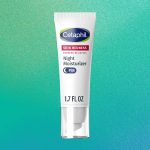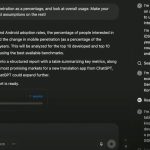Last Updated:
People often turn to painkillers to relieve headaches, antibiotics for a sore throat, or cough syrups to alleviate respiratory issues, often without seeking a proper medical diagnosis
One of the most significant dangers of self-medication is its potential to mask underlying health issues. By using OTC medications to treat symptoms, individuals may be overlooking the root cause of their condition
In today’s fast-paced world, the ease of accessing over-the-counter (OTC) medications has led to a rise in self-medication. People often turn to painkillers to relieve headaches, antibiotics for a sore throat, or cough syrups to alleviate respiratory issues, often without seeking a proper medical diagnosis. Although this may seem like a quick fix, it brings with it a host of public health risks that go far beyond individual well-being. Dr Mahua Das Gupta, Director of Medical Affairs, HaystackAnalytics:
The Risk: Delayed diagnosis and progression of diseases
One of the most significant dangers of self-medication is its potential to mask underlying health issues. By using OTC medications to treat symptoms, individuals may be overlooking the root cause of their condition. Many serious illnesses begin with common symptoms like fever, fatigue, or cough, that could easily be mistaken for a less severe ailment. For instance, tuberculosis (TB) often starts with symptoms similar to other bacterial or viral infections. When individuals self-medicate with OTC drugs, they delay necessary medical testing, allowing the disease to progress unchecked. In some cases, this leads to complications and increased risk of transmission to others.
The growing threat: Antimicrobial Resistance (AMR) and adverse drug reactions
One of the most alarming consequences of self-medication is the exacerbation of antimicrobial resistance (AMR). Misusing antibiotics, particularly for viral infections where they are ineffective, accelerates the development of drug-resistant bacteria. The World Health Organization (WHO) has identified AMR as one of the top ten global public health threats, with an estimated 5 million deaths linked to drug-resistant infections annually (WHO, 2023). Self-medication also heightens the risk of adverse drug reactions, as individuals may not be aware of the appropriate dosage, potential interactions, or side effects of the drugs they are taking.
Public behavior: A false sense of control
Additionally, self-medication often gives people a false sense of control over their health. The immediate relief that OTC medications offer can lead individuals to believe that their condition is improving, even when the underlying problem is worsening. This sense of comfort may delay the decision to seek professional medical care, leading to greater health risks over time. Chronic conditions or serious infections like diabetes or pneumonia require careful management and medical supervision, something self-medication simply cannot provide.
The gap: The need for diagnostic-led care
The dangers of self-medication underscore the need for a fundamental shift in how we approach healthcare. Instead of relying on symptom-based treatments, diagnostic-led care should be the priority. Diagnostic-led care ensures that patients receive a thorough medical evaluation, accurate diagnosis, and an individualized treatment plan. It helps identify underlying conditions early, improving health outcomes and reducing the risk of complications.
By adopting diagnostic-led care, we can mitigate the harms caused by self-medication, such as delayed diagnoses, antimicrobial resistance, and adverse drug reactions. This approach empowers healthcare professionals to offer tailored treatment and preventive strategies, ensuring better health management and long-term well-being for patients.






